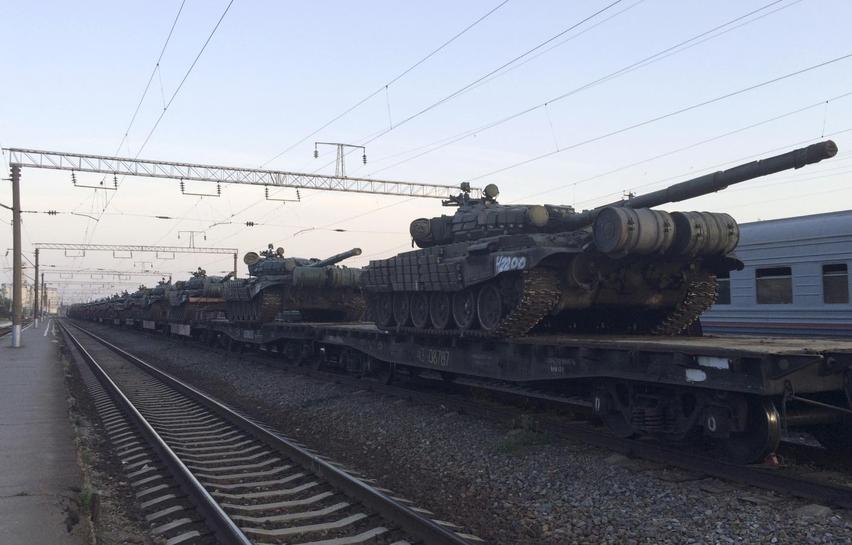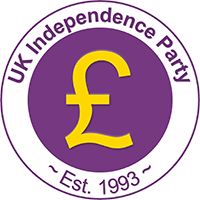Ukraine: Johnson is playing dangerous games
News & Social Media / Post
Johnson is talking a deeper crisis into existence

Yesterday we observed that it’s highly likely that the build up of Russian forces near to the Ukrainian border is a bluff. They have not deployed anything like the number of troops necessary to mount and invasion and occupation of Ukraine (The Telegraph claims up to 130,000 Russian troops), and much of the necessary kit is not in place.
If we go back to 1956, when the Soviets invaded Hungary, there were already five divisions in the country and the forces were topped up to 17 divisions, amounting to 200,000 troops. In 1968, when the Soviets repeated the process in then Czechoslovakia, the initial forces committed to the invasion comprised 200,000 troops and, over the course of the campaign, it is variously estimated that as many as 500,000 personnel were engaged.
Only in Russia’s second Chechen War did numbers drop to the 100,000-mark, but that was a very different style of war, putting down an insurgency on its own territory, rather than an invasion.
Although technology has improved over the decades, numbers still count. And when it comes to Ukraine, over six times the size of Hungary, and five times larger than the former Czechoslovakia – anything less than about 200,000 with significant airpower and supporting arms, would risk failure. Well armed Ukrainian forces could inflict very serious casualties making any such venture politically untenable for Putin.
Moreover, as we aver, closer inspection of footage from Ukraine shows that this “invasion force” more resembles the Antiques Roadshow than an elite strike unite. Some vehicles are museum pieces first introduced in the seventies and long since dropped out of front-line service. This suggests a major deception operation – though you would never expect the excitable children in British media to pick up on it.
On the back of simplistic media narratives we see politicians posturing as though we were looking at the rise of Nazi Germany in the thirties, but this isn’t that. A more sober assessment, surprisingly, can be found in The Guardian in which Keir Giles of Chatham House notes that the deployment is already doing what it’s supposed to do. It is precisely this concentration of Russian troops that has brought the US to the table to talk about what Russia wants.
Away from the immediate and explicit demands tied to the troop build-up, says Giles, “Russia has achieved other, secondary, objectives. Issues previously at the front of western minds, such as Russia’s occupation of Crimea and continuing ceasefire violations in eastern Ukraine, have been swept aside by more urgent concerns over imminent escalation”.
He remarks that “This isn’t even the first time Russia has done this. After the seizure of Crimea in 2014, Russia caused surprise with the speed and effectiveness with which it moved large numbers of its land forces to the border with Ukraine. But the main role of those forces throughout most of 2015 was to sit on the border, augmenting and depleting as required, in order to focus the attention of the west and provide the menace to reinforce Russia’s demands for a flawed and unworkable “ceasefire”.
He concludes that there are a number of well-argued and highly plausible scenarios for land operations against Ukraine but each of them presents Russia with significant challenges. “A limited-scale operation brings no benefits Russia doesn’t already have, while a full-on onslaught designed to take and hold Ukrainian territory is considered beyond the reach of the force currently assembled”.
Now that Russia has our attentions, it is for the West to decide whether to persist with NATO expansion, which (loosely speaking), is to Russia what the Northern Ireland Protocol is to Brexiteers and Unionists. It is said that in the post-cold war era NATO exists to solve the problems it creates - and this is looking like one of them. There is no need to to provoke Russia.
Ukraine is a strategically important country for Russia. It is a military supplier of Russia. Bringing Ukraine into NATO, ripping Ukraine out of Russia's orbit is very obviously provocative. We gain very little from it, Russia loses a lot. We then have treaty obligations we cannot and will not fulfil. So what then have we achieved?
Sensibly, the Swedes decided not to join NATO, maintaining a position of armed neutrality, with a strong, indigenous arms industry. Sovereignty is fine, but it doesn’t absolve you from the consequences of making stupid decisions. It cannot have passed the notice of the Ukrainians that they have a very powerful neighbour and that, if they put up two fingers and align with the west, there will be consequences. Benelux countries have long had to come to terms with the realities of strong neighbours. This is what Ukraine has to do. The West can imply military and diplomatic backing without provocative formal moves - which is enough to keep the peace.
For Ukraine to join NATO, bringing it under Article 5 protection, would commit the USA to a potential conflict or expensive long term stand-off when the US has largely lost interest in Europe, more concerned with threats in the Pacific. Such a stand-off would divert defence resources while pushing Russia towards China. The Americans aren’t stupid. They won’t defend Ukraine under Article 5 if attacked so we have to ask what the point of NATO expansion is.
It serves Boris Johnson to hype up the threat to divert the media from his domestic woes but in so doing, committing our forces to a counterproductive confrontation, he’s playing a dangerous and foolish game. Poland, Germany and France have no intention of going to war with Russia over Ukraine, not least because of the obvious consequences for energy supplies, but also because escalation leads to an all out war which nobody wants (apart from Tory backbenchers).
The UK has sent a small number of troops and has supplied Ukraine with a number of anti-tank weapons, the latter acting as a potent deterrent, which further reduces the odds of invasion, but this is how you end up with a tit-for tat build up, ultimately draining both sides of resources they can ill afford to squander.
The intelligent thing to do is find a diplomatic path to de-escalation, and that starts with abandoning NATO expansion – which is dead in the water anyway. There we have to ask why Ukraine itself is playing provocative games, what it expects to achieve, and whether we’re being misled.
Boris Johnson is abusing the situation as a means to secure his image as a strong leader, and to avert a leadership challenge, which plays well to his supporters, showing that only Brexit Britain is willing to stand up to tyrants, but this is a wholly juvenile, self-serving and jingoistic approach, and one that threatens the peace.
With the clueless media feeding the “Russian aggression” hysteria, they are giving Johnson the fodder he needs for his theatricals. Between them they could very easily make everything worse. It is that, more than any birthday party, which makes Johnson wholly unsuitable to lead this country.
Recent National News











